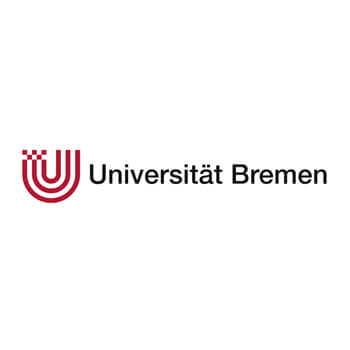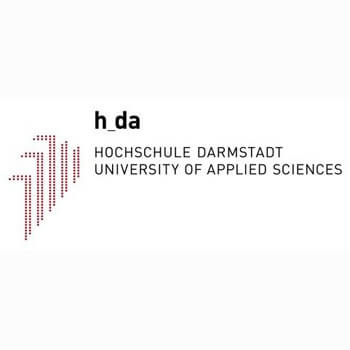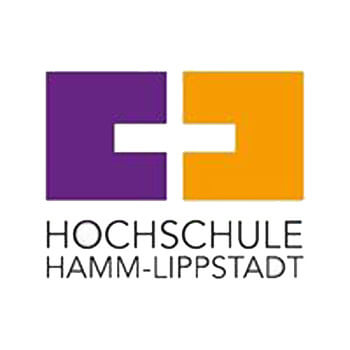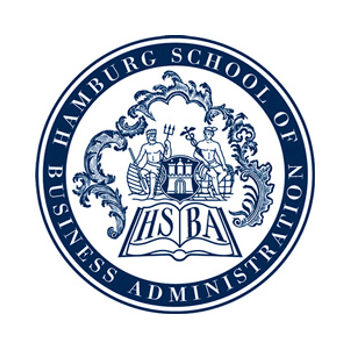University of Bremen

Founded: 1971
Address: Bibliothekstrasse 1 - Bremen, Germany
Phone: +49421 2180
Address: Bibliothekstrasse 1 - Bremen, Germany
Phone: +49421 2180
Here you find out University of Bremen complete information about fees, location, degree University of Bremen offers, number, website, and much more. University of Bremen is a leading university in Bremen - Germany.
You can also find out jobs at University of Bremen for students, teachers, and professors. We also update the database for an internship at University of Bremen for students.
The University of Bremen is a young university. It was founded in 1971 for the purpose of teacher training. What was to become known as the “Bremen Model“ was conceived in times of social reform. Its core elements apply to this day and it was these basic principles which first made the subsequent research success possible: Interdisciplinary orientation, research-based learning in teaching p...rojects, orientation to the practice and social commitment. Some new guiding principles have been added since: Internationalization of teaching and research, equal gender opportunity, and environmental responsibility.
The University of Bremen is a medium-sized German university with around 20,000 students. For its committed and talented students, Bremen offers a wide range of subjects: More than 100 masters programs and bachelor programs, as well as the state law exam. And with research-based learning, the University has reinterpreted project studies, a defining feature originating from when it was founded. 2,500 academics (41%), among them 270 professors (29% women), teach and research in a wide range of disciplines: In the natural sciences, engineering, the social sciences and the humanities as well as in teacher training, we have a long established tradition in interdisciplinary cooperation and excellent research. In 2012, the University’s Institutional Strategy “Ambitious and Agile” led to it being awarded with the title of “University of Excellence”, one of only eleven universities in Germany.
The issues of today"s and future societies are dealt with in six interdisciplinary high-profile areas focused on the oceans and the global climate, the future of industrial production, the social conflicts of modern welfare states, the interfaces between digital technology and humans, the logistics of global supply chains, and equity in health care. The University promotes diversity, has always encouraged the implementation of new ideas and the independence of its young researchers, and takes its social responsibilities seriously. We are not afraid to be the first to tread new territory: Founded as a reform university, we aim to breathe life into change.
The University has been cooperating successfully with the non-university research institutes in its immediate vicinity for a long time, this includes 11 jointly funded by the federal government and the federal states. More than 50 so-called ‘cooperation professors’ can testify to this. Our vision: To further anchor Bremen as a leading European research university and an inspiring place of education. To achieve this, we rely on our strengths, on the potential of all University members, and on the trusting cooperation with our partners.
In only forty years, the University of Bremen – founded in 1971 – has achieved the status of being named a “University of Excellence”. In 2012, together with ten other German universities, it received this acknowledgement of merit for its institutional strategy concept for cutting-edge research. What some have called “the Weser miracle” was the result of high motivation, close cooperation, and clear profiling over several decades. The University continues to pursue its path of excellent research. This remains the case, even though it was unable to gain the required two clusters of excellence in the current round of the Excellence Initiative and is therefore no longer eligible to apply to the funding program “Excellence University” in the period after 2019.
However, in the current round of the Excellence Strategy, the University of Bremen is still in the running with the MARUM proposal “Ocean Floor” where an excellence cluster is already working. The BIGSSS social science graduate school, which received funding in two phases of the Excellence Initiative, has been jointly funded on a permanent basis by the University of Bremen and Jacobs University, due to there being no further funding for graduate schools in the excellence competition.
Nevertheless, the University currently has more DFG Collaborative Research Centers than ever before: This is mainly owing to its high profile research areas and profiling strategy that began over twenty years ago. The University of Bremen is now system accredited, and thus able to conduct its own independent quality management in the area of teaching. The current focus is on research-based learning and setting up innovative new masters programs, these are also characteristics of an Excellent University. At the same time, it is establishing new, dependable career paths with a tenure perspective in addition to the professorship career path. The whole University was involved in developing the future perspectives formulated in “Strategy 2018-2028”.
The institutional strategy entitled “Ambitious and Agile” is a development strategy for the entire University. The nine measures formulated in the strategy have strengthened the University as a whole. The funding totaling 45 million euro lasted for five years (November 2012 to October 2017). The federal and state governments have extended the funding by two years until 2019.
The Institutional Strategy built bridges: Eleven cooperative junior research groups (M1) have established new research topics at the interface between the University and our partner research institutes – and thus introduced a new career concept. Among their members was Céline Teney, who received both the Heinz Maier-Leibnitz Prize awarded by the DFG as well as a Heisenberg Professorship. Five bridge professorships anchor long-term cooperation with our partners, who also participate financially. A new framework for this was created in 2016 with the establishment of the U Bremen Research Alliance. The Rectorate has also initiated other important developments in the University’s high-profile areas: MAPEX in materials science, and the merger of the social sciences into SOCIUM. Both now create more cooperation and more international visibility over the long term. And in computer science, the Graduate College Systems Design (SyDe) now combines the promotion of young researchers from the University, DFKI and DLR.
The Institutional Strategy has systematically expanded the University’s capacity for innovation: Only in this way can new topics, new structures and new areas of professorial work be established on an ongoing basis. Exploration projects for individual research were newly established. Supplemented by an interdisciplinary component, they are now an integral part of our Central Research Funding. With the Creative Units, the University has given six interdisciplinary groups the chance to pursue new lines of research – over three-year periods and with a great deal of freedom. It will also be possible to implement this innovative funding format in future. Moreover, as planned, the University is consolidating some of the limited-term professorships set up in the frame of the Institutional Strategy and which gave a boost to some particularly dynamic subjects (energy research, media and communication sciences, East European research and post-colonial studies).
Following the founding of the University ― as an “academic complex” on the outskirts of the town ― and a number of reforms at the beginning, a period of consolidation set in through the nineteen eighties. The University of Bremen grew in size. New faculties for natural science and engineering were established, the University started a cooperation with the Alfred Wegener Institute for Polar and Ocean Research in Bremerhaven, and the Technology Park was created (1988).
The University of Bremen also began to score its first successes with the establishment of Collaborative Research Centers (in 1988 the University was accepted into the German Research Society - DFG) and the acquisition of substantial external funding. Steadily improving research rankings, growing national and international recognition and a large number of endowment professorships were the visible fruits of this success.
The University advanced this success further by establishing a set of new guiding principles. Among other things, the University concentrated efforts on the promotion of young research talent and implemented personnel development programs for its young researchers, many of whom were awarded professorships in the wake of the generation change that was taking place.
In addition to all this, teaching and studies at the University of Bremen underwent considerable change: A new admission policy, for instance, with program-specific enrolment requirements, and the swift transition of study programs to Bachelor and Master Degrees. The reward for this commitment came with the title “City of Science 2005”, awarded to Bremen and Bremerhaven as result of joint efforts on the part of science, politics, culture, and the enterprise sector.
Today, some 25,000 people study, teach, research and work at the University of Bremen. It has become the center of science and research in the North West of Germany, particularly renowned for its strengths in the natural and engineering sciences as well as the social sciences and the humanities. The work carried out by its excellent researchers, many of whom of world renown, provides an important stimulus to societal development.
As the outstandingly favorable outcome of its showing in the underscores, the University is not content to bathe in past success and simply rest on its laurels. As a “learning organization“, it is constantly adapting the role it intends to play in the present and future research and academic landscape.
You can also find out jobs at University of Bremen for students, teachers, and professors. We also update the database for an internship at University of Bremen for students.
The University of Bremen is a young university. It was founded in 1971 for the purpose of teacher training. What was to become known as the “Bremen Model“ was conceived in times of social reform. Its core elements apply to this day and it was these basic principles which first made the subsequent research success possible: Interdisciplinary orientation, research-based learning in teaching p...rojects, orientation to the practice and social commitment. Some new guiding principles have been added since: Internationalization of teaching and research, equal gender opportunity, and environmental responsibility.
The University of Bremen is a medium-sized German university with around 20,000 students. For its committed and talented students, Bremen offers a wide range of subjects: More than 100 masters programs and bachelor programs, as well as the state law exam. And with research-based learning, the University has reinterpreted project studies, a defining feature originating from when it was founded. 2,500 academics (41%), among them 270 professors (29% women), teach and research in a wide range of disciplines: In the natural sciences, engineering, the social sciences and the humanities as well as in teacher training, we have a long established tradition in interdisciplinary cooperation and excellent research. In 2012, the University’s Institutional Strategy “Ambitious and Agile” led to it being awarded with the title of “University of Excellence”, one of only eleven universities in Germany.
The issues of today"s and future societies are dealt with in six interdisciplinary high-profile areas focused on the oceans and the global climate, the future of industrial production, the social conflicts of modern welfare states, the interfaces between digital technology and humans, the logistics of global supply chains, and equity in health care. The University promotes diversity, has always encouraged the implementation of new ideas and the independence of its young researchers, and takes its social responsibilities seriously. We are not afraid to be the first to tread new territory: Founded as a reform university, we aim to breathe life into change.
The University has been cooperating successfully with the non-university research institutes in its immediate vicinity for a long time, this includes 11 jointly funded by the federal government and the federal states. More than 50 so-called ‘cooperation professors’ can testify to this. Our vision: To further anchor Bremen as a leading European research university and an inspiring place of education. To achieve this, we rely on our strengths, on the potential of all University members, and on the trusting cooperation with our partners.
In only forty years, the University of Bremen – founded in 1971 – has achieved the status of being named a “University of Excellence”. In 2012, together with ten other German universities, it received this acknowledgement of merit for its institutional strategy concept for cutting-edge research. What some have called “the Weser miracle” was the result of high motivation, close cooperation, and clear profiling over several decades. The University continues to pursue its path of excellent research. This remains the case, even though it was unable to gain the required two clusters of excellence in the current round of the Excellence Initiative and is therefore no longer eligible to apply to the funding program “Excellence University” in the period after 2019.
However, in the current round of the Excellence Strategy, the University of Bremen is still in the running with the MARUM proposal “Ocean Floor” where an excellence cluster is already working. The BIGSSS social science graduate school, which received funding in two phases of the Excellence Initiative, has been jointly funded on a permanent basis by the University of Bremen and Jacobs University, due to there being no further funding for graduate schools in the excellence competition.
Nevertheless, the University currently has more DFG Collaborative Research Centers than ever before: This is mainly owing to its high profile research areas and profiling strategy that began over twenty years ago. The University of Bremen is now system accredited, and thus able to conduct its own independent quality management in the area of teaching. The current focus is on research-based learning and setting up innovative new masters programs, these are also characteristics of an Excellent University. At the same time, it is establishing new, dependable career paths with a tenure perspective in addition to the professorship career path. The whole University was involved in developing the future perspectives formulated in “Strategy 2018-2028”.
The institutional strategy entitled “Ambitious and Agile” is a development strategy for the entire University. The nine measures formulated in the strategy have strengthened the University as a whole. The funding totaling 45 million euro lasted for five years (November 2012 to October 2017). The federal and state governments have extended the funding by two years until 2019.
The Institutional Strategy built bridges: Eleven cooperative junior research groups (M1) have established new research topics at the interface between the University and our partner research institutes – and thus introduced a new career concept. Among their members was Céline Teney, who received both the Heinz Maier-Leibnitz Prize awarded by the DFG as well as a Heisenberg Professorship. Five bridge professorships anchor long-term cooperation with our partners, who also participate financially. A new framework for this was created in 2016 with the establishment of the U Bremen Research Alliance. The Rectorate has also initiated other important developments in the University’s high-profile areas: MAPEX in materials science, and the merger of the social sciences into SOCIUM. Both now create more cooperation and more international visibility over the long term. And in computer science, the Graduate College Systems Design (SyDe) now combines the promotion of young researchers from the University, DFKI and DLR.
The Institutional Strategy has systematically expanded the University’s capacity for innovation: Only in this way can new topics, new structures and new areas of professorial work be established on an ongoing basis. Exploration projects for individual research were newly established. Supplemented by an interdisciplinary component, they are now an integral part of our Central Research Funding. With the Creative Units, the University has given six interdisciplinary groups the chance to pursue new lines of research – over three-year periods and with a great deal of freedom. It will also be possible to implement this innovative funding format in future. Moreover, as planned, the University is consolidating some of the limited-term professorships set up in the frame of the Institutional Strategy and which gave a boost to some particularly dynamic subjects (energy research, media and communication sciences, East European research and post-colonial studies).
Following the founding of the University ― as an “academic complex” on the outskirts of the town ― and a number of reforms at the beginning, a period of consolidation set in through the nineteen eighties. The University of Bremen grew in size. New faculties for natural science and engineering were established, the University started a cooperation with the Alfred Wegener Institute for Polar and Ocean Research in Bremerhaven, and the Technology Park was created (1988).
The University of Bremen also began to score its first successes with the establishment of Collaborative Research Centers (in 1988 the University was accepted into the German Research Society - DFG) and the acquisition of substantial external funding. Steadily improving research rankings, growing national and international recognition and a large number of endowment professorships were the visible fruits of this success.
The University advanced this success further by establishing a set of new guiding principles. Among other things, the University concentrated efforts on the promotion of young research talent and implemented personnel development programs for its young researchers, many of whom were awarded professorships in the wake of the generation change that was taking place.
In addition to all this, teaching and studies at the University of Bremen underwent considerable change: A new admission policy, for instance, with program-specific enrolment requirements, and the swift transition of study programs to Bachelor and Master Degrees. The reward for this commitment came with the title “City of Science 2005”, awarded to Bremen and Bremerhaven as result of joint efforts on the part of science, politics, culture, and the enterprise sector.
Today, some 25,000 people study, teach, research and work at the University of Bremen. It has become the center of science and research in the North West of Germany, particularly renowned for its strengths in the natural and engineering sciences as well as the social sciences and the humanities. The work carried out by its excellent researchers, many of whom of world renown, provides an important stimulus to societal development.
As the outstandingly favorable outcome of its showing in the underscores, the University is not content to bathe in past success and simply rest on its laurels. As a “learning organization“, it is constantly adapting the role it intends to play in the present and future research and academic landscape.
Read More
Details:
LeaderShip: President: Prof. Dr.-Ing. Bernd Scholz-Reiter
Fees:
Time:
Phone Number: +49421 2180
City: Bremen
Fees:
Time:
Phone Number: +49421 2180
City: Bremen
Timing:
Country: Germany
Staff: 3500
Website: http://www.uni-bremen.de
Country: Germany
Staff: 3500
Website: http://www.uni-bremen.de
Subjects:
Jobs in University of Bremen
Currently, there is no job opening in University of Bremen as per our database.



















Leave a Reply